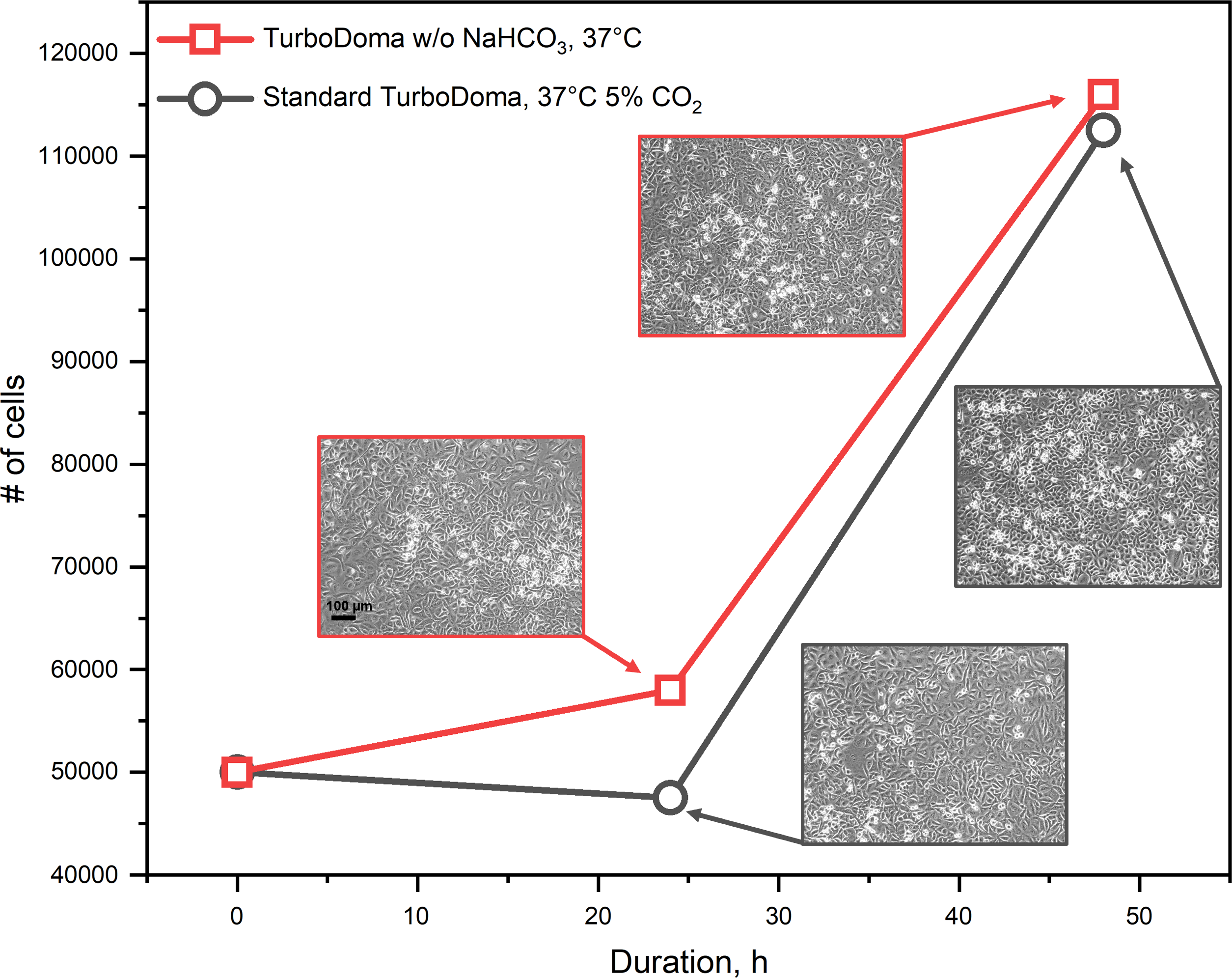Focus on human in vitro nutrition – Case study #1
Culture of tumor cells without carbon dioxide aeration
We have recently announced the launch of a service platform to give translational research centers access to optimised in vitro human cell nutrition. Here we present a case study on the modification of a chemically defined culture medium to allow for incubation of human lung tumor cells at 37°C without carbon dioxide aeration. As excess exogeneous CO2 can harm cells in culture, we believe that incubating cells without exogeneous CO2 has a beneficial impact on cell physiology, culture conditions and lab- to large-scale bioprocess applications.
Objectives of the case study
We have evaluated the possibility of growing human tumor-derived cells in incubators without exogeneous CO2. The replacement of CO2-incubators with simple incubators without CO2 aeration greatly simplifies in vitro cell culture operations, particularly for microphysiological systems including organoids, organ-on-chip and 3-D tissue culture.
Setting
The study was performed at the Dept. of Mechanical and Process Engineering, Nanophotonic Systems Laboratory, ETH Zurich, Switzerland.
Cells and culture media
A549, human lung cancer-derived cells cultivated in chemically defined Turbodoma® medium with and without sodium hydrogen carbonate.
Intervention
Serum-dependent A549 cells were first adapted to adherent proliferation under serum deprivation, then tested for the ability to proliferate in incubators without CO2 aeration.
Measurements
Figure 1 Culture of A549 cells incubated without CO2 aeration in modified Turbodoma® medium without sodium hydrogen carbonate (red line) and with CO2 aeration in standard Turbodoma® medium with sodium hydrogen carbonate (black line). The CO2-free buffer system allows effective stabilisation of the pH within the physiological range and thus immediate entry into the cell growth cycle.
Results and outlook
We have successfully introduced a physiological buffer system that allows for the incubation of human tumor-derived cells without exogeneous CO2 aeration. The system is applicable to any culture medium, from the classic DMEM and RPMI 1640 media over serum-free chemically defined media like ChoMaster®, Turbodoma®, Hektor™ and InVitrus™, to physiologic culture media.
Future work includes long-term culture of human cells under CO2-free static and agitated culture conditions. The replacement of carbon dioxide/sodium hydrogen carbonate with physiologic buffer systems will facilitate future investigations on advanced cell therapy applications, including large-scale cell production.
To access our custom physiological media list, please click on the link below :
For literature about physiological media, please click on the link below :
If you wish to know more about our customisation services, please contact us at :

